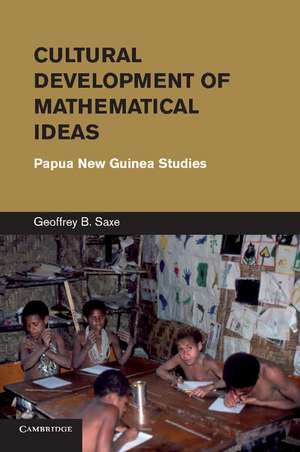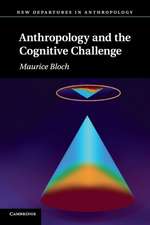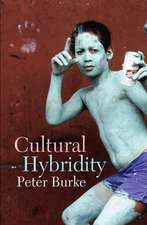Cultural Development of Mathematical Ideas: Papua New Guinea Studies: Learning in Doing: Social, Cognitive and Computational Perspectives
Autor Geoffrey B. Saxeen Limba Engleză Paperback – 5 mar 2014
| Toate formatele și edițiile | Preț | Express |
|---|---|---|
| Paperback (1) | 322.51 lei 6-8 săpt. | |
| Cambridge University Press – 5 mar 2014 | 322.51 lei 6-8 săpt. | |
| Hardback (1) | 783.67 lei 6-8 săpt. | |
| Cambridge University Press – 27 sep 2012 | 783.67 lei 6-8 săpt. |
Din seria Learning in Doing: Social, Cognitive and Computational Perspectives
-
 Preț: 311.66 lei
Preț: 311.66 lei - 9%
 Preț: 695.96 lei
Preț: 695.96 lei -
 Preț: 319.43 lei
Preț: 319.43 lei -
 Preț: 228.66 lei
Preț: 228.66 lei -
 Preț: 201.39 lei
Preț: 201.39 lei - 11%
 Preț: 493.04 lei
Preț: 493.04 lei -
 Preț: 281.88 lei
Preț: 281.88 lei -
 Preț: 431.40 lei
Preț: 431.40 lei - 14%
 Preț: 900.82 lei
Preț: 900.82 lei -
 Preț: 326.53 lei
Preț: 326.53 lei -
 Preț: 346.50 lei
Preț: 346.50 lei -
 Preț: 296.65 lei
Preț: 296.65 lei -
 Preț: 292.45 lei
Preț: 292.45 lei - 20%
 Preț: 279.91 lei
Preț: 279.91 lei - 11%
 Preț: 459.10 lei
Preț: 459.10 lei -
 Preț: 357.13 lei
Preț: 357.13 lei - 11%
 Preț: 526.58 lei
Preț: 526.58 lei - 14%
 Preț: 784.65 lei
Preț: 784.65 lei -
 Preț: 320.66 lei
Preț: 320.66 lei - 11%
 Preț: 512.98 lei
Preț: 512.98 lei -
 Preț: 332.97 lei
Preț: 332.97 lei - 11%
 Preț: 690.80 lei
Preț: 690.80 lei - 11%
 Preț: 444.70 lei
Preț: 444.70 lei -
 Preț: 324.15 lei
Preț: 324.15 lei -
 Preț: 350.97 lei
Preț: 350.97 lei -
 Preț: 392.00 lei
Preț: 392.00 lei - 20%
 Preț: 516.51 lei
Preț: 516.51 lei -
 Preț: 330.33 lei
Preț: 330.33 lei - 14%
 Preț: 786.15 lei
Preț: 786.15 lei - 5%
 Preț: 321.87 lei
Preț: 321.87 lei -
 Preț: 350.21 lei
Preț: 350.21 lei -
 Preț: 321.27 lei
Preț: 321.27 lei - 14%
 Preț: 726.60 lei
Preț: 726.60 lei -
 Preț: 339.96 lei
Preț: 339.96 lei
Preț: 322.51 lei
Nou
Puncte Express: 484
Preț estimativ în valută:
61.71€ • 64.31$ • 51.10£
61.71€ • 64.31$ • 51.10£
Carte tipărită la comandă
Livrare economică 03-17 aprilie
Preluare comenzi: 021 569.72.76
Specificații
ISBN-13: 9781107685697
ISBN-10: 1107685699
Pagini: 400
Ilustrații: 120 b/w illus. 4 maps 24 tables
Dimensiuni: 152 x 229 x 21 mm
Greutate: 0.53 kg
Editura: Cambridge University Press
Colecția Cambridge University Press
Seria Learning in Doing: Social, Cognitive and Computational Perspectives
Locul publicării:New York, United States
ISBN-10: 1107685699
Pagini: 400
Ilustrații: 120 b/w illus. 4 maps 24 tables
Dimensiuni: 152 x 229 x 21 mm
Greutate: 0.53 kg
Editura: Cambridge University Press
Colecția Cambridge University Press
Seria Learning in Doing: Social, Cognitive and Computational Perspectives
Locul publicării:New York, United States
Cuprins
Introduction; Part I. The Origins of Number-Enduring Questions: 1. Culture-cognition relations; 2. Cultural forms of number representation used in Oksapmin communities; Part II. Economic Exchange: 3. Collective practices of economic exchange: a brief social history; 4. Reproduction and alteration of numerical representations; 5. Reproduction and alteration in currency token representations; 6. Representational forms, functions, collective practices, and fu: a microcosm; Part III. Schooling: 7. A brief history: collective practices of schooling in Oksapmin; 8. Unschooled children's developing uses of the body system; 9. Children's adaptations of the body system in school in 1980: an unintended consequence of postcolonial schooling; 10. About twenty years later: schooling and number; 11. Teachers and students as (unintentional) agents of change; Part IV. Towards an Integrated Treatment of Socio-Historical and Cognitive Developmental Processes: 12. What develops? A focus on form-function relations; 13. How do quantification practices develop?; 14. Why do form-function relations shift?; Epilogue.
Recenzii
'Cultural anthropologist Clifford Geertz proposed that 'small facts speak to large issues' … In many ways, Geoffrey Saxe's new book echoes the Geertz quote. By gathering together the many small facts of numerical reasoning practices he has collected over a thirty-year period in a community in the Oksapmin region of Papua New Guinea, Saxe has assembled a dynamic documentary report of answers to the question: how are culture and cognition related? … At the end of this book, Saxe returns us to the Geertz quote … by suggesting that this culmination of thirty years of field work in Oksapmin mathematics makes three distinct contributions to the literature: thick description of a vanishing cultural community; little theory; and big theory … I would like to add that this important book provides a window into the professional career of a remarkable researcher and scholar.' Ellice A. Forman, Mathematical Thinking and Learning
'… [Saxe] highlights what the cognitive sciences can gain from anthropologically informed cognitive studies … such as deep insights into the construction and alteration of cognitive representations within the sociocultural context and its changing demands … the synopsis presented in this volume condenses a profound and impressive collection of about twenty-five years of research in a way that allows for deeper insights to be gained than the single papers could have done alone … A striking commonality in the chapters throughout this book is Saxe's focus on the tool-like character of the body-part system and how this tool is used and adapted purposefully to serve new functions. No matter whether or not one shares the theoretical framework on cognition and culture with Geoffrey Saxe, his detailed analyses and the broad contextualization open a fascinating window into the cultural development of numerical cognition.' Sieghard Beller, Ethos
'This book is a tour de force in moving theory toward a fully historical, social and activity based account of cultural and developmental change. The case presented is particular to an 'exotic' (to us) group, but the theoretical apparatus developed has wide-ranging application. This book isn't about 'them' it is about 'us' as well.' Joseph Glick, Human Development
'Saxe is a master of theory and method in human development, and he provides a model for how to conduct contextually grounded, theoretically useful, path-breaking research that moves the field forward.' Ashley E. Maynard, Journal of Cognition and Development
'Saxe's background chapters on his personal journey and his visits to Oksapmin and the historical background of currency changes in Papua New Guinea together with the carefully developed reports of each study and the overall linkage with his theoretical perspective make this an important contribution to psychology especially within the Pacific Rim region, and a crucial reference for those in Papua New Guinea interested in mathematics, education, cognition, psychology, anthropology and/or sociology.' Kay Owens, Journal of Pacific Rim Psychology
'… comprehensive and well documented … should appeal to a wide audience beyond cultural anthropology and cultural psychology … it will delight … this book should be of interest worldwide …' Pierre R. Dasen, Alterstice
'I can see at least three reasons why this book is a must-read for every mathematics education researcher. First, as an inexhaustible source of insights about numerical thinking and its development and also about human thinking in general, it can be trusted to provide the interested reader with a hearty serving of food for thought. Second, it is not every day that one sees a longitudinal study capturing a historical change in the making. This turns Saxe's story into something truly unique and precious. Finally, these [pages] of well-written text are too enjoyable a read to be missed.' Anna Sfard, Educational Studies in Mathematics
'… [Saxe] highlights what the cognitive sciences can gain from anthropologically informed cognitive studies … such as deep insights into the construction and alteration of cognitive representations within the sociocultural context and its changing demands … the synopsis presented in this volume condenses a profound and impressive collection of about twenty-five years of research in a way that allows for deeper insights to be gained than the single papers could have done alone … A striking commonality in the chapters throughout this book is Saxe's focus on the tool-like character of the body-part system and how this tool is used and adapted purposefully to serve new functions. No matter whether or not one shares the theoretical framework on cognition and culture with Geoffrey Saxe, his detailed analyses and the broad contextualization open a fascinating window into the cultural development of numerical cognition.' Sieghard Beller, Ethos
'This book is a tour de force in moving theory toward a fully historical, social and activity based account of cultural and developmental change. The case presented is particular to an 'exotic' (to us) group, but the theoretical apparatus developed has wide-ranging application. This book isn't about 'them' it is about 'us' as well.' Joseph Glick, Human Development
'Saxe is a master of theory and method in human development, and he provides a model for how to conduct contextually grounded, theoretically useful, path-breaking research that moves the field forward.' Ashley E. Maynard, Journal of Cognition and Development
'Saxe's background chapters on his personal journey and his visits to Oksapmin and the historical background of currency changes in Papua New Guinea together with the carefully developed reports of each study and the overall linkage with his theoretical perspective make this an important contribution to psychology especially within the Pacific Rim region, and a crucial reference for those in Papua New Guinea interested in mathematics, education, cognition, psychology, anthropology and/or sociology.' Kay Owens, Journal of Pacific Rim Psychology
'… comprehensive and well documented … should appeal to a wide audience beyond cultural anthropology and cultural psychology … it will delight … this book should be of interest worldwide …' Pierre R. Dasen, Alterstice
'I can see at least three reasons why this book is a must-read for every mathematics education researcher. First, as an inexhaustible source of insights about numerical thinking and its development and also about human thinking in general, it can be trusted to provide the interested reader with a hearty serving of food for thought. Second, it is not every day that one sees a longitudinal study capturing a historical change in the making. This turns Saxe's story into something truly unique and precious. Finally, these [pages] of well-written text are too enjoyable a read to be missed.' Anna Sfard, Educational Studies in Mathematics
Notă biografică
Descriere
Geoffrey Saxe traces the emergence of numerical representations and ideas as people participate in collective practices of daily life.















